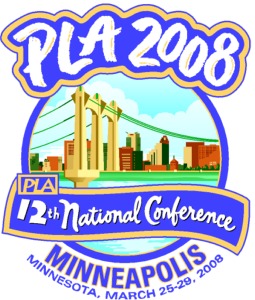
Back in
March 2006, Jason Fried and his company
37Signals released the book
Getting Real: The smarter, faster, easier way to build a successful web application. Originally available in PDF format only, in October Fried released a
paper version, produced by Lulu.com, and a free HTML version.
Getting Real is an important book. It came along at exactly the right time, said something important. To the extent the greap web-app "explosion" of 2004-2007 had a book, this was it.
And it was successful. According to 37Signals the (paid) version has sold has 30,000 copies. It's the
number six seller on
Lulu.com. Passionate, unpaid fans have produced translations into thirteen languages. Google records
166,000 mentions. Even on LibraryThing, where the book had to be manually entered and there is a bias toward the printed version, 37 members have
listed it.
Did libraries notice? Not at all.
OCLC's WorldCat records exactly three copies—MIT, California Polytechnic and the University of Nebraska. That's three copies of one of the top tech books of the 00's in most of the US libraries that matter. The Library of Congress? New York Public? Harvard? None of them. For comparison, WorldCat contains
619 copies of
Solitary sex : a cultural history of masturbation.
This is not an isolated phenomenon.
Lulu, the online, no-editors, print-on-demand publisher that 37Signals turned to is almost completely ignored by libraries. Take a look at its
100 top-sellers and run the books through WorldCat. I made a start: Lulu's most popular book, something about ecommerce, is held by NO library in WorldCat. The second,
How to Become an Alpha Male, is held by just two.
Let's be clear, Lulu publishes a lot of crap! But it's not
all crap. And even if it
were, publishers like Lulu represent a significant event in the history of publishing—an event libraries should be trying to capture. Lulu isn't some obscure novelty—it already gets
twice the web traffic of HarperCollins.
I am a passionate defender of libraries and library data—of the relevance of libraries now and going forward. LibraryThing is the only significant service of its kind to use library data and to link liberally to libraries. I believe in the expertise to choose and classify—that innovations like social cataloging and tagging supplement but do not replace expert classification. LibraryThing has as many librarians as programmers. I like blogs, but I love books.
But this throws me completely. How could libraries miss this?
Thanks to
LibraryThing members for bringing this topic up.
Addendum (moved from comments): I'm not that concerned about regular public libraries, excluding the Bostons and the NYPLs. They're about access more than comprehensiveness and preservation. These books are available. I think it would be great if one of the jobbers added Lulu to their list, and the top-selling Lulu books were found in large publics, but I have my eye on academics.
Take the number two book—"How to be an alpha male." Many universities have large and active gender-studies departments. Taking GR's numbers and assuming a long-tail distribution of sales, we can guess that book has cleared 60-100,000 copies. I suspect that if HarperCollins or Random House published such a book, they'd be all over it, and not because of any notion of "quality." They'd get it because it would be an important document of American gender identity.
Instead, I'm afraid its absense is a document of American publisher- and librarian-identity.
Labels: 37Signals, collection development, getting real, libraries, library science







 I'm excited to say that
I'm excited to say that 







